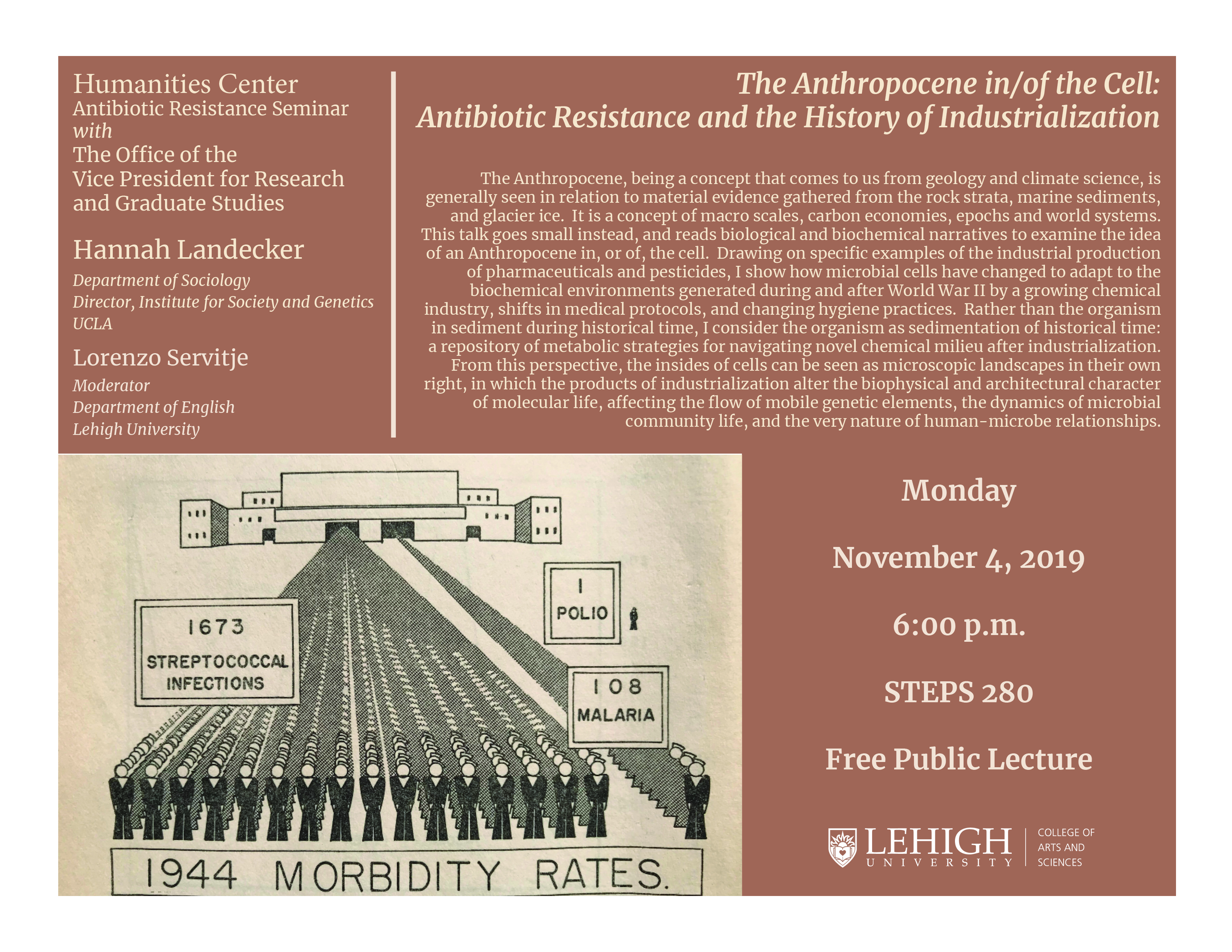Date:
Monday, November 4, 2019 - 6:00pm
The Humanities Center - Antibiotic Resistance Seminar
with
The Office of the Vice President for Research and Graduate Studies
with
The Office of the Vice President for Research and Graduate Studies
The Anthropocene in/of the Cell: Antibiotic Resistance and the History of Industrialization
Hannah Landecker
Department of Sociology
Director, Institute for Society and Genetics
UCLA
Hannah Landecker
Department of Sociology
Director, Institute for Society and Genetics
UCLA
Lorenzo Servitje
Moderator
Department of English
Moderator
Department of English
Lehigh University
The Anthropocene, being a concept that comes to us from geology and climate science, is generally seen in relation to material evidence gathered from the rock strata, marine sediments, and glacier ice. It is a concept of macro scales, carbon economies, epochs and world systems. This talk goes small instead, and reads biological and biochemical narratives to examine the idea of an Anthropocene in, or of, the cell. Drawing on specific examples of the industrial production of pharmaceuticals and pesticides, I show how microbial cells have changed to adapt to the biochemical environments generated during and after World War II by a growing chemical industry, shifts in medical protocols, and changing hygiene practices. Rather than the organism in sediment during historical time, I consider the organism as sedimentation of historical time: a repository of metabolic strategies for navigating novel chemical milieu after industrialization. From this perspective, the insides of cells can be seen as microscopic landscapes in their own right, in which the products of industrialization alter the biophysical and architectural character of molecular life, affecting the flow of mobile genetic elements, the dynamics of microbial community life, and the very nature of human-microbe relationships.
STEPS 280
Free Public Lecture

Department:
Humanities Center
